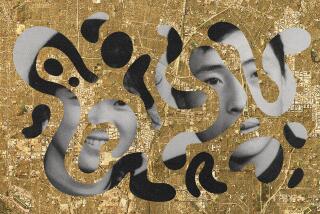A Unifying Campaign : Southland’s Diverse Chinese Community Bands Together in Mainland’s Dispute With Japan Over Diaoyu Islands
- Share via
In a historic display of unity, members of Southern California’s large and politically polarized Chinese community are rallying to their ancestral land in China’s territorial dispute with Japan over the Diaoyu Islands about 9,000 miles away.
On Wednesday, Chinese American leaders representing 40 groups met in Monterey Park to set aside their differences--at least for the moment--in announcing the formation of the Diaoyutai Defense Coalition of Southern California.
“This is a good opportunity for all of us, regardless of our differences, to unite,” said David Ma, chairman of the Chinese American Civil Rights Organization. “Our goal is not only to stand up to the Japanese . . . but also to send a message to Taiwan and Beijing: ‘Don’t fight, you are brothers.’ ”
The alliance of diverse groups in the overseas Chinese community transcends nearly half a century of division by homeland politics and regional loyalties.
After the Communist takeover of mainland China in 1949, the Nationalist government fled to Taiwan and established the Republic of China in Taipei. But China still considers Taiwan a renegade province. And there is a strong movement for an independent Taiwan among native Taiwanese.
Shanghai native Ma, active in the international movement to bring democracy to China, is working with Canton-born Joe Y. Chiu, a staunch supporter of the Nationalist government in Taiwan.
“The whole Chinese community is united on this,” said Chiu, president of the Chinese Consolidated Benevolent Assn., which represents 28 family associations with 50,000 members. Their belief in China’s ownership of the islands transcends ideology, Chiu said.
“When we protested at the Japanese Consulate, 300 of us marched with both the flags of mainland China and Taiwan,” said Alex Fan, a Glendale developer who has long been active in the movement to get Japan to make reparations to its World War II victims. “This has never happened before.”
Last Thursday, Hong Kong activist David Chan drowned in a symbolic jump into the stormy sea near the islands after Japanese patrol boats stopped protesters’ attempts to claim them for China. A memorial service and a candlelight vigil for Chan are scheduled for Saturday in Monterey Park.
In the last two weeks, the Chinese Students and Scholars Assn., representing thousands of Chinese intellectuals from Hong Kong, Taiwan and mainland China, protested at the Japanese Consulate here. And hundreds of ethnic Chinese, supported by other Asians who also were victims of Japanese imperialism in this century, demonstrated in New York and San Francisco.
A spokesman for the Japanese Consulate in Los Angeles said the islands, called Sensaku by Japan, are “an inherent part of the Japanese territory.”
The dispute erupted a month ago after a right-wing Japanese group built a lighthouse on one of eight uninhabited islets in the East China Sea and raised a Japanese flag.
The nationalistic fervor among Chinese Americans is not shared by some native-born Taiwanese, many of whom do not consider themselves Chinese.
Ting-Yee Wang, an advocate for an independent Taiwan and past president of the Formosan Assn. for Human Rights, said mainland China is orchestrating overseas Chinese.
The conflict is a matter between Japan and Taiwan, not China, he said.
“Many Taiwanese feel that the activities by some Chinese are not really aiming at these islands, but using this as a vehicle to demand that Taiwan become part of China,” said Li-Pei Wu, of the Los Angeles based Taiwanese American Citizens League.
Wu, head of General Bank in Los Angeles, said the Nationalist government of Chiang Kai-shek was too busy fighting with Communists to pay attention to what the United States was doing to the islands when Japan lost World War II and surrendered its occupied territories, including Taiwan.
More to Read
Sign up for Essential California
The most important California stories and recommendations in your inbox every morning.
You may occasionally receive promotional content from the Los Angeles Times.













